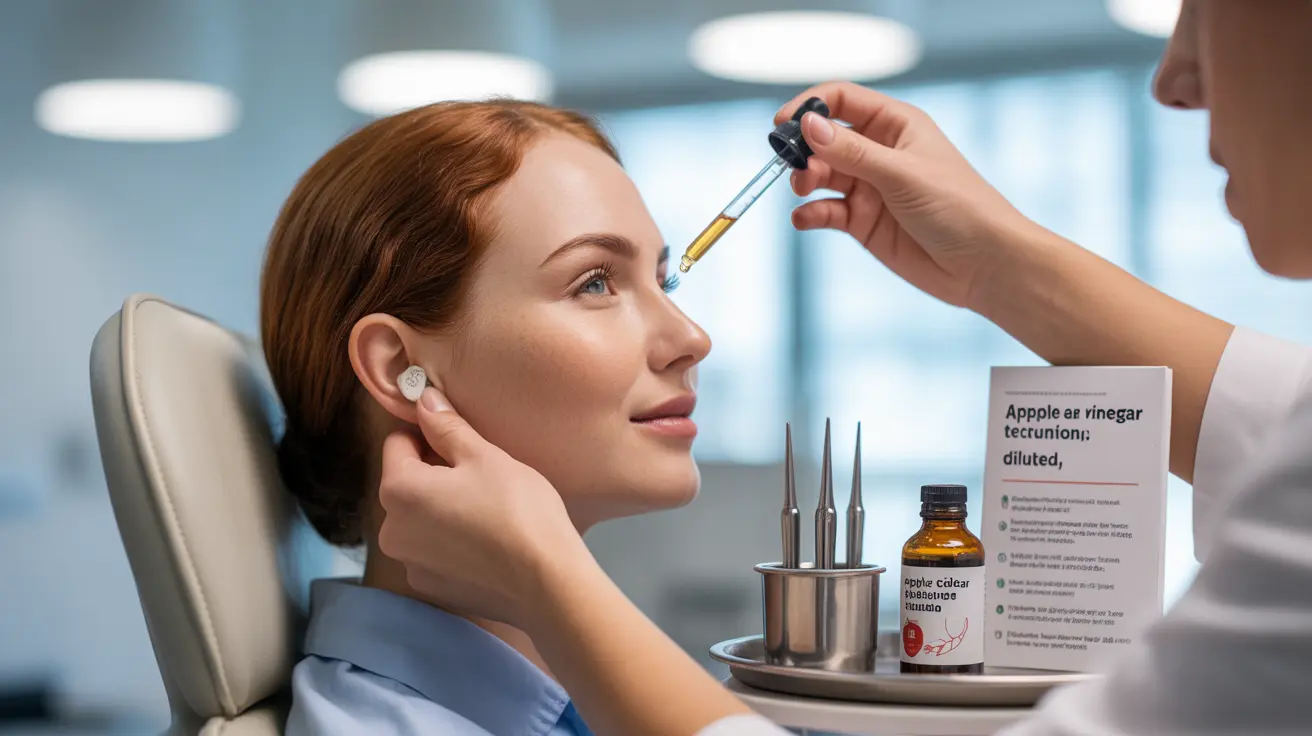Ear infections can be painful and disruptive, leading many people to seek natural remedies like vinegar as a potential treatment option. While some individuals turn to vinegar, particularly apple cider vinegar, for ear infections, it's crucial to understand both the potential benefits and risks before attempting any home treatment.
This comprehensive guide examines the scientific evidence behind using vinegar for ear infections, proper application methods, and important safety considerations to help you make an informed decision about your ear health.
Understanding Ear Infections and Vinegar Treatment
Ear infections can affect different parts of the ear, with outer ear infections (otitis externa) being the type most commonly considered for vinegar treatment. The acidic properties of vinegar may help create an environment that's less hospitable to certain bacteria and fungi that cause ear infections.
The Science Behind Vinegar's Antimicrobial Properties
Vinegar contains acetic acid, which has demonstrated antimicrobial properties in various studies. However, it's important to note that most medical research on vinegar's effectiveness for ear infections is limited, and results are mixed. The acidic environment created by vinegar may help restore the ear canal's natural pH balance, potentially supporting the healing process.
Safe Application Methods
If you're considering using vinegar for an ear infection, proper dilution and application are crucial for safety:
- Mix equal parts water and vinegar
- Use only room temperature solution
- Apply no more than 3-4 drops
- Never use if eardrum perforation is suspected
- Keep the ear tilted for 1-2 minutes after application
Potential Risks and Considerations
Using vinegar for ear infections carries several risks that should be carefully considered:
- Burning or irritation of the ear canal
- Potential damage if used with a perforated eardrum
- Delayed proper medical treatment
- Worsening of certain types of infections
- Chemical burns from undiluted vinegar
When to Seek Medical Treatment
Professional medical attention is necessary if you experience:
- Severe ear pain
- Fever
- Blood or pus drainage
- Hearing loss
- Symptoms lasting more than 2-3 days
- Recurring ear infections
Frequently Asked Questions
Can apple cider vinegar effectively treat an outer ear infection?
While vinegar has some antimicrobial properties, scientific evidence supporting its effectiveness for ear infections is limited. It may help create an unfavorable environment for some bacteria, but it's not a proven replacement for medical treatment.
How should I safely use apple cider vinegar for an ear infection at home?
If choosing to try vinegar, always dilute it equally with water, use only 3-4 drops at room temperature, and keep the ear tilted for 1-2 minutes. Never use vinegar if you suspect a perforated eardrum or have tubes in your ears.
What are the risks of using undiluted apple cider vinegar in my ear?
Undiluted vinegar can cause chemical burns, severe irritation, and damage to the ear canal and eardrum. It may also worsen the infection or cause additional complications. Always dilute vinegar before use.
When should I see a doctor instead of trying apple cider vinegar for an ear infection?
See a doctor if you have severe pain, fever, drainage from the ear, hearing loss, or symptoms lasting more than 2-3 days. Professional medical treatment is especially important for children, recurring infections, or if you have underlying health conditions.
Is apple cider vinegar safe to use for ear infections in children?
Vinegar treatments are not recommended for children's ear infections. Children are more susceptible to complications and should always be evaluated by a healthcare provider for proper diagnosis and treatment.




